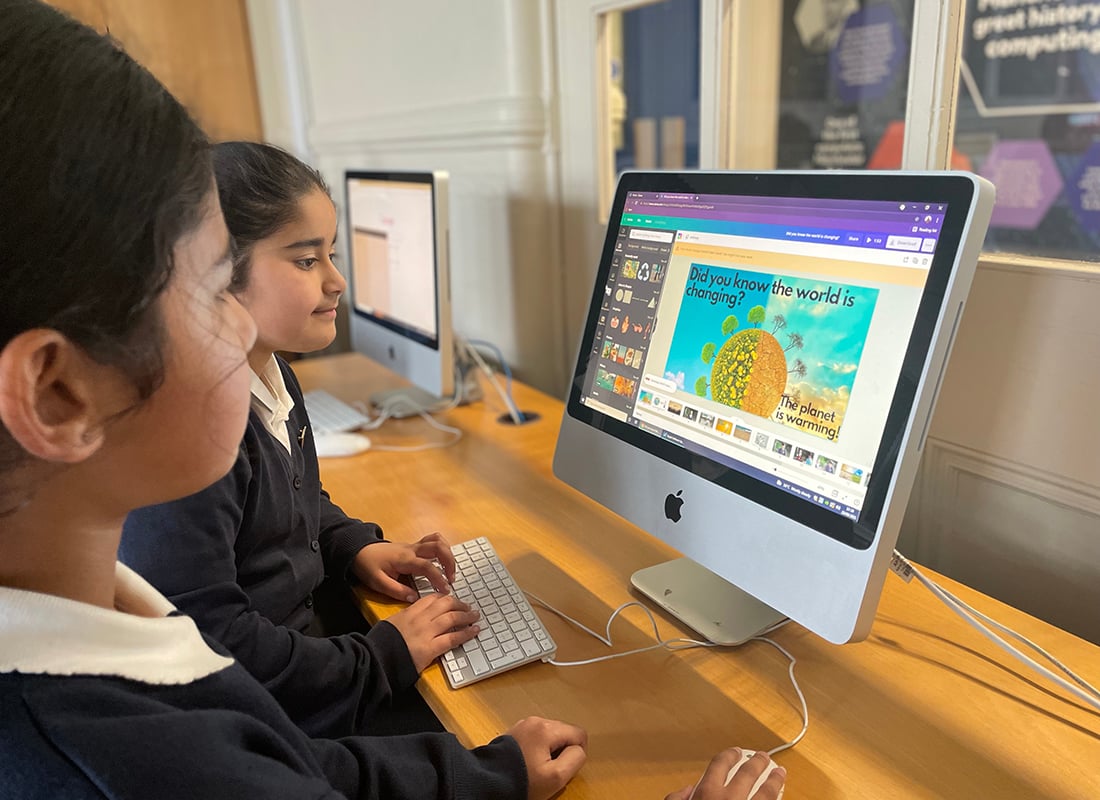The COP26 conference is a focal point for the global effort to fight climate change. Dr Jon Chippindall, Barefoot Content Director with BCS’ Computing at Schools network explains how tech-savvy kids are making their voices heard too.
Far from leaving the debate about climate change to adults, Barefoot - a collaboration between BCS’ Computing at Schools network and other key partners including BT and the Department for Education - created an innovative set of resources for schools which enabled primary school children to have their say about safeguarding the planet’s future.
The initiative is creative, digitally-led and designed to enable young people to develop their computing skills.
Why don’t you introduce yourself.
My name is Jon Chippindall, often known as Dr Chips by my pupils. I’m the Barefoot Content Director at BCS and I teach computing and science to years five and six at a school in North Manchester. For those who don’t know, Barefoot is all about supporting teachers to teach computing.
We focus on enabling a high-quality computing education for all pupils through resources and professional development workshops for teachers. The Barefoot project itself has been around since 2014 and, to date, we've helped over 85,000 teachers and reached over 3,000,000 pupils.
So, tell us about Barefoot’s focus on COP26 and climate change?
We’ve created a project called Climate Champions. Within it, we’ve got three sets of resources for primary teachers to use with different age groups. For five to seven year olds, we've got the ‘Recycling Warriors’ resource. For seven to nine, we've got ‘Planet Protectors’ and for nine to eleven we’ve got ‘Power Savers’.
For you
Be part of something bigger, join BCS, The Chartered Institute for IT.
The real focus of these resources is inspiring pupils - getting them to use their creative tech skills to generate digital content about the climate crisis... Things like stop motion animations, posters and videos using apps and applications like Canva.
Through these, pupils make their planet pledges - highlighting specific things they're going to do to help tackle the climate crisis, all with the aim of persuading others to think and act. It’s all about working together to tackle the climate crisis.
How did the project come about?
The aim was to develop pupils’ digital skills whilst linking in with COP26... To get pupils thinking about climate change and about how they can communicate their ideas using a variety of tech tools. So, really, it's a double whammy, a win-win.
We're developing critical digital skills and spreading the message that we all need to act together to tackle the climate crisis.
In terms of the young people themselves, how motivated and enthusiastic are they? Was it a difficult sell?
No, it certainly wasn’t. Their appetites were whet, they are aware of climate change. But, part of the resource is giving them the time and the opportunity to pursue their curiosity... to really find out and understand [the challenge]. Curiosity is a wonderful thing, but you can't be curious about something you know nothing about.
What are the outputs going to be from the project? Is the work going to exist just within individual schools or are you hoping for a bigger and wider impact?
We’ve got different outputs planned at a variety of levels. At the class level, pupils are going to be making their digital planet pledges, but we want them to share those with - and across - their wider school communities, so we’re providing resources for schools to run their own ‘Climate Champions’ conference to coincide with COP26. We’d also love schools to share their work with us on Twitter @BarefootComp or Instagram @barefootcomputing.
Will the project end with COP26 or will it have a life after the event?
We’re still developing the project. But, yes, we’re planning pupil roundtables and discussions - it’s all about pupils sharing their voice and what they've done, what matters to them, what's important to them and what they've found out.
The ultimate goal - which we’re still putting together - is to have the pupils sharing their work, ideas and discoveries with people from industry and maybe right up to a policy level.
And finally, what further projects does Barefoot have on the horizon?
We’re currently working on a resource which showcases the broad diversity of opportunity in computing and the tech sector which we hope to launch soon, and we’re scheduling in more of our popular ‘Barefoot Live’ events where teachers beam the Barefoot team into their classrooms. To find out more visit www.barefootcomputing.org
Image credit: Jon Chippindall / Barefoot

















